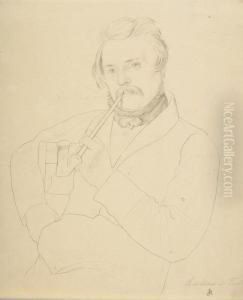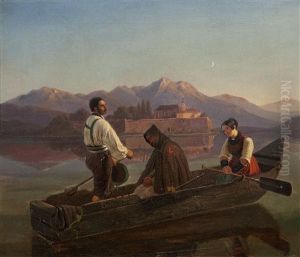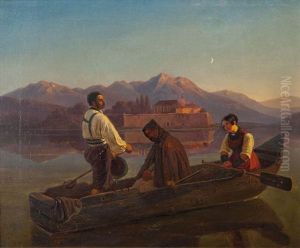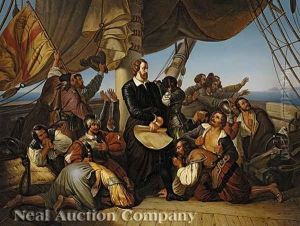Christian Ruben Paintings
Christian Ruben was a German painter born on May 5, 1805, in Trier, which was then part of the French Empire but is now located in Germany. He was known for his historical and religious paintings, as well as for his work as an educator in the field of art.
Ruben received his early education in art at the Düsseldorf Academy, which was one of the most influential art schools in Germany during the 19th century. His teachers included the famous painters Peter von Cornelius and Wilhelm von Schadow, both of whom were key figures in the German Romantic and Nazarene movements. These movements emphasized a return to the spirituality and simplicity of medieval and early Renaissance art, which greatly influenced Ruben's own style.
Throughout his career, Ruben continued to develop his skills and became known for his ability to blend the spiritual and historical themes of the Nazarenes with a more realistic portrayal of scenes and figures. His works often depicted events from the Bible, history, and mythology, rendered with a sense of drama and emotional depth. Ruben's paintings were characterized by their vivid colors and attention to detail, which helped to convey the narratives and moral messages of his subjects.
In addition to his work as a painter, Ruben was also an influential art educator. He served as a professor at the Academy of Fine Arts in Prague from 1842 to 1846 and later became the director of the Academy of Fine Arts in Vienna, a position he held from 1849 until his death. In these roles, he was responsible for training a new generation of artists and for contributing to the development of art education in Central Europe.
Christian Ruben's legacy includes not only his artwork but also his impact on the students he taught and the institutions he led. He died on June 9, 1875, in Vienna. His paintings can be found in various museums and art collections, where they continue to be appreciated for their historical significance and artistic merit.







